Lemon trees are characterized as a small variety of evergreen trees. Classified as flowering plants, they are widely recognized, grown, and cultivated for the fruit that they bear.
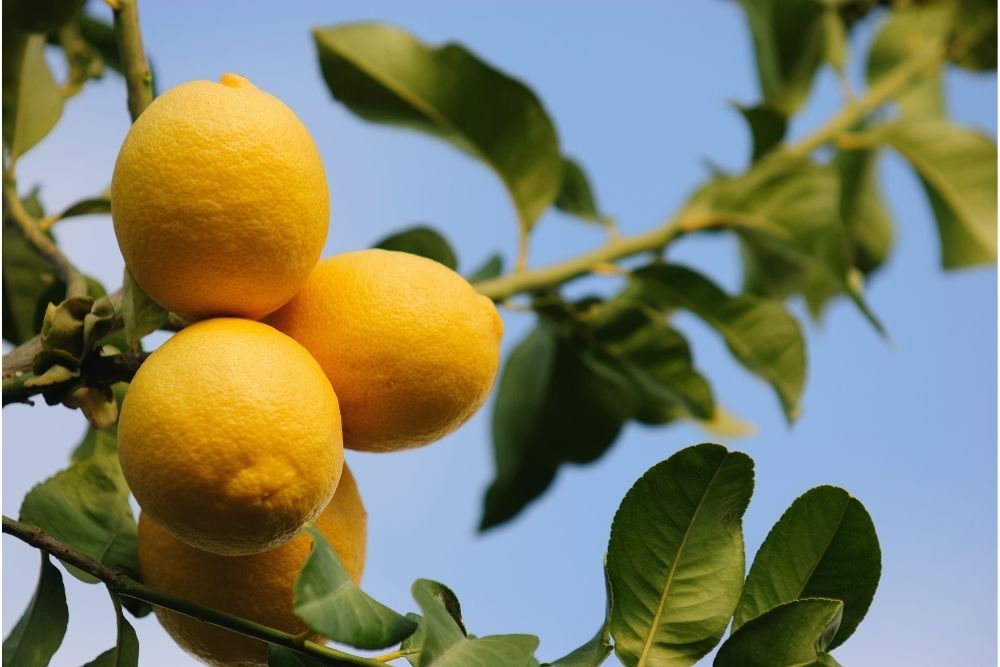
Whilst you may be familiar with the common appearance of lemon with its bright yellow bumpy rind and sharp pulp… No lemon is the same.
Each variety of lemon trees bears a unique fruit that consists of a distinct flavor, scent, and even shape. There are a multitude of different types of lemon that you may not have even realized were lemons.
To delve into the fascinating world of citrus plants, we’ll explore the broad diversity of some of the most amazing lemon trees.
1. Avalon Lemon Tree
The Avalon lemon tree is one of the most common lemon tree varieties recognized for producing fruit with a smooth yellow surface.
The Avalon lemon fruit is the type of lemon that you’ll most commonly see in the supermarket. The Avalon lemon is native to Florida but is widely cultivated across the world as a sweeter and juicier variety.
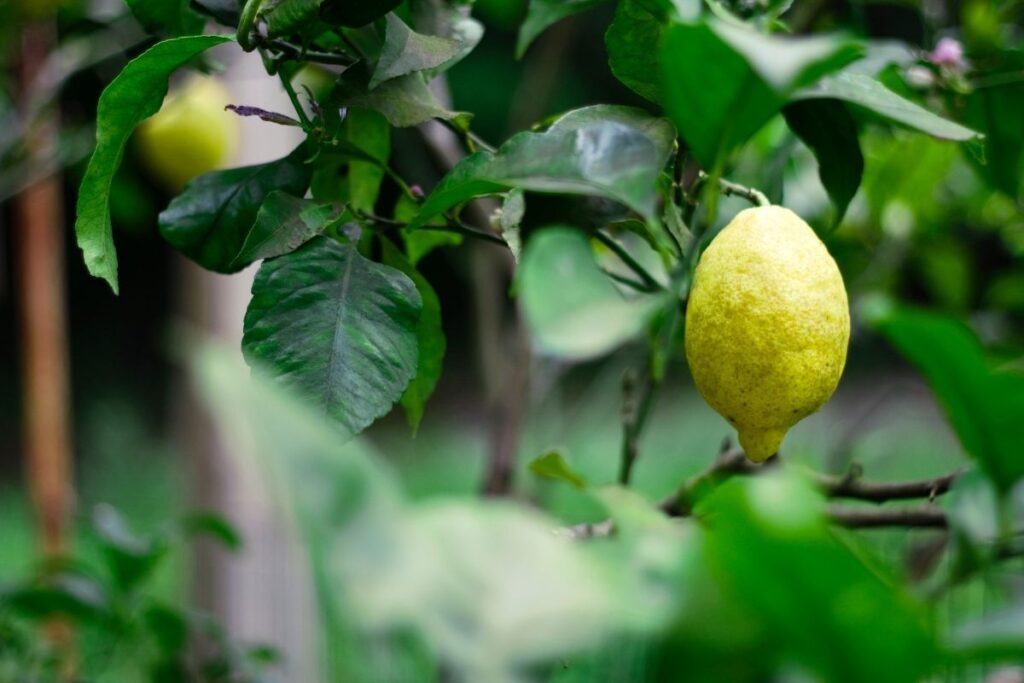
2. Variegated Pink Lemon Tree
The variegated pink lemon tree produces a distinct and unique lemon variety that consists of a green-striped rind that bears resemblance to a watermelon.
The variegated pink lemon fruit is a cultivated lemon. The variegated pink lemon can be recognized by both its stripes and its pink grapefruit-like flesh.
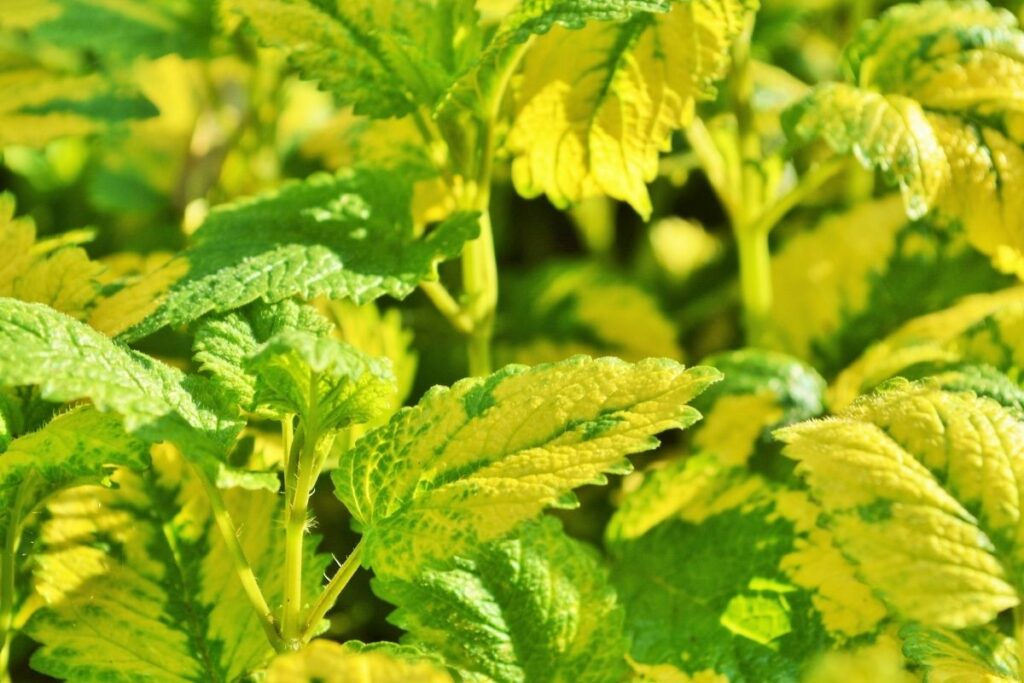
3. Verna Lemon Tree
The Verna lemon tree is native to Spain. It is considered to produce relatively large lemons that are recognized for their distinct sharp flavor. This tree’s fruit is characterized as having few seeds and is considered to be a great variety for making lemonade.
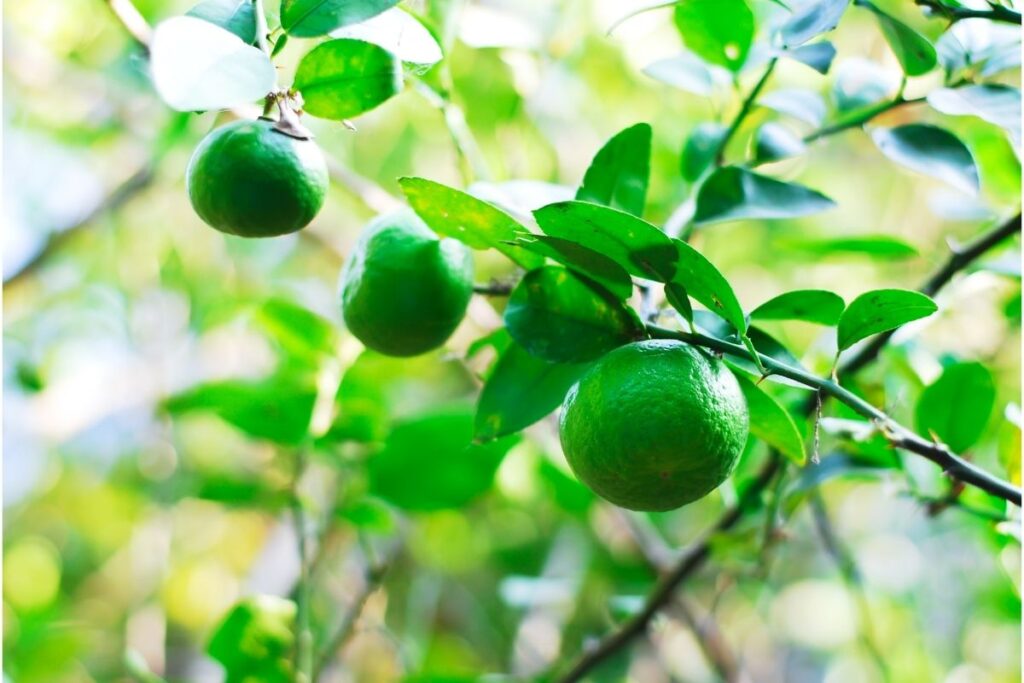
4. Bearss Lemon Tree
The Bearss lemon tree is not unique in its appearance as it represents the characteristics of the common lemon tree. It produces fruit that is classified as a true lemon variety.
However, the Bearss lemon is unique in that it is considered to contain a relatively tart flavor. It is also characterized as containing a high concentration of lemon oil and producing a strong citrus scent.
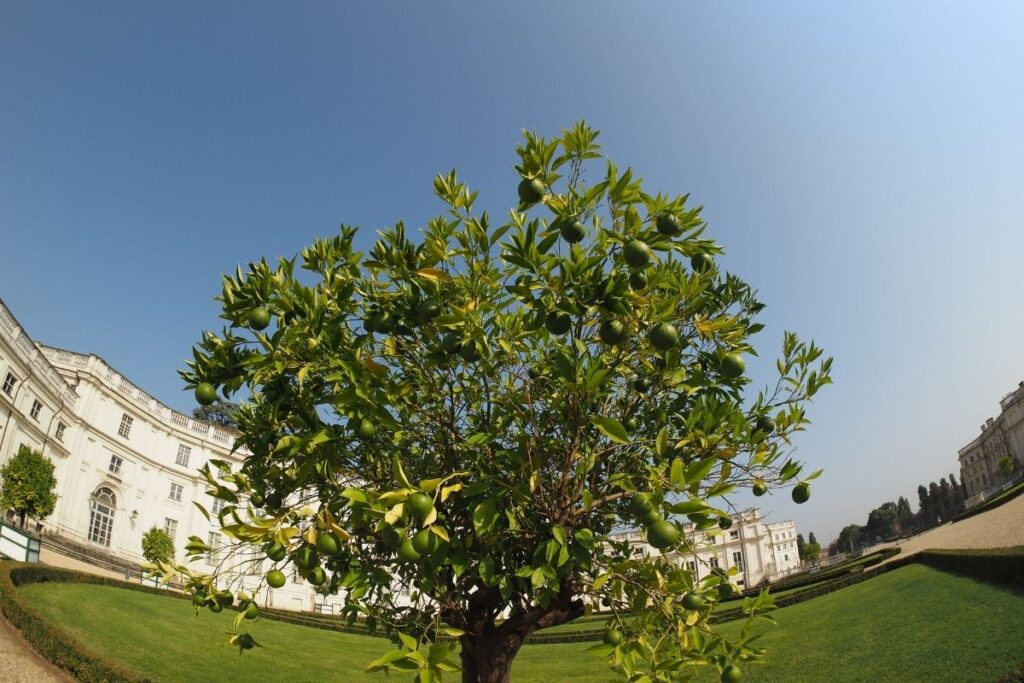
5. Dorshapo Lemon Tree
The dorshapo lemon tree produces distinctive fruit that is commonly mistaken for lime due to its small size and green rind. The dorshapo lemon tree is native to Brazil and is classified as a cultivated lemon tree that is related to the Eureka lemon tree.
Though its fruit consists of a lime-like appearance, the dorshapo lemon is considered to have a significantly less acidic lemon variety.
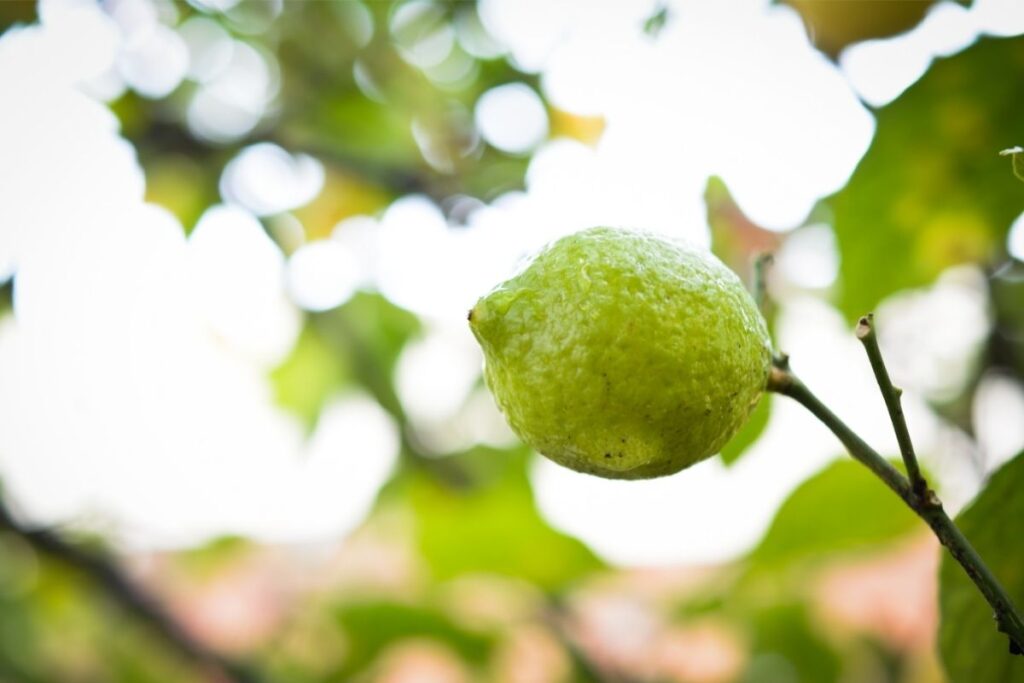
6. Lisbon Lemon Tree
The Lisbon lemon tree, as its name suggests, is native to Lisbon. The Lisbon lemon produces fruit that has the appearance of a common lemon with a slightly bumpy yellow rind. The Lisbon lemon is considered to be ideal for culinary use as it is classified as a more tart and acidic lemon variety.
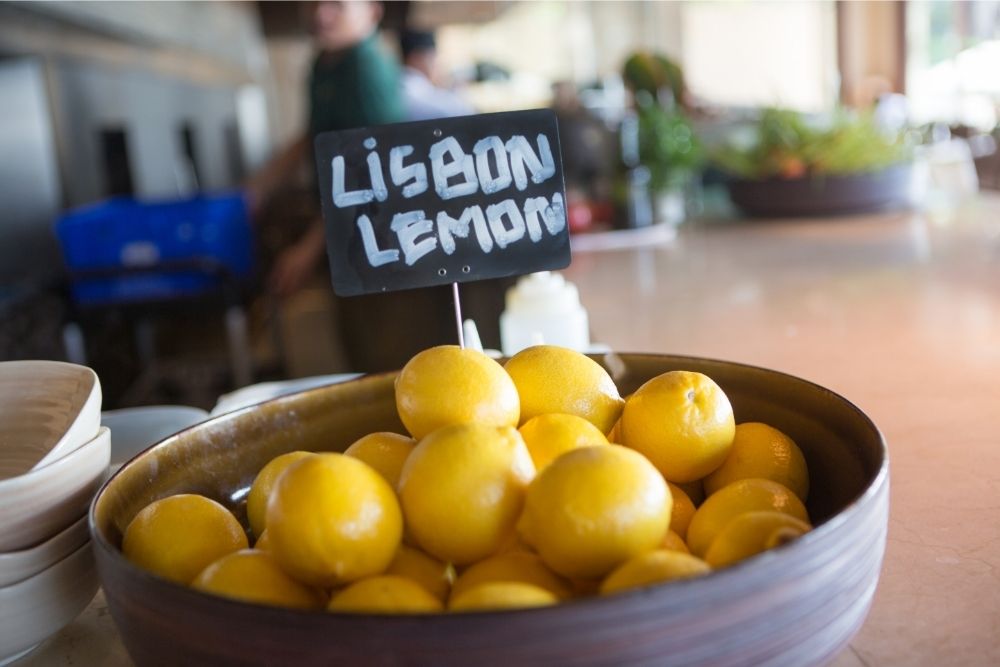
7. Baboon Lemon Tree
The baboon lemon tree produces relatively large lemons with a thick and bumpy yellow rind. Though posing the appearance of a lemon, this variety of lemon is said to taste more like lime with its tart and bitter flavor. The baboon lemon is native to Brazil and is widely used for culinary purposes.
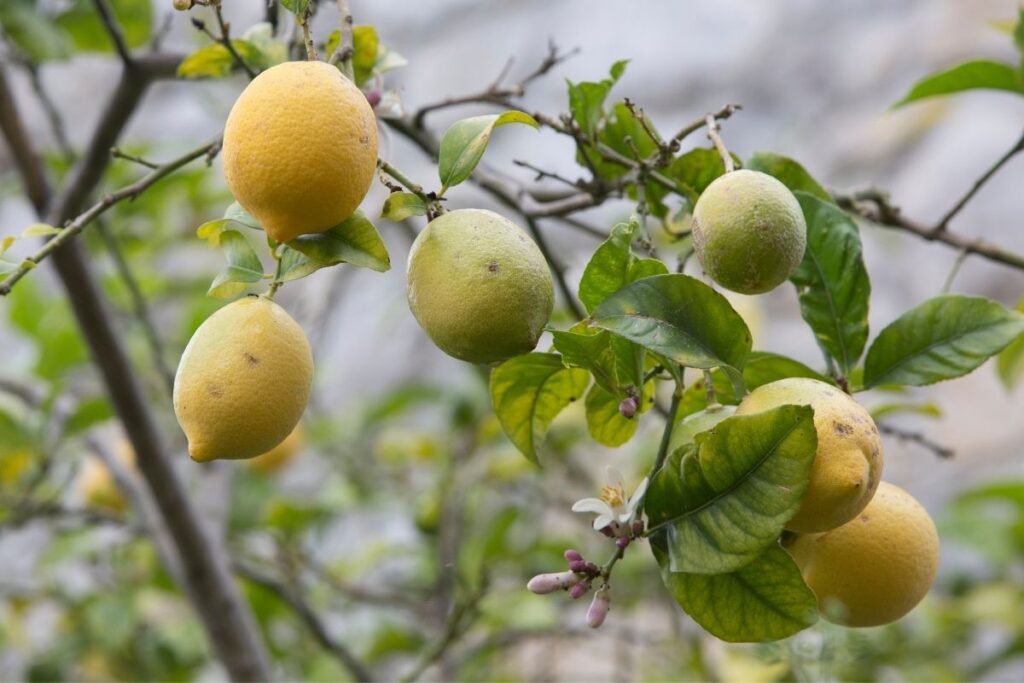
8. Genoa Lemon Tree
The genoa lemon tree consists of a shrub-like appearance with its dense foliage. Native to Italy, the genoa lemon tree is recognized for its hardiness as it is known for withstanding cold temperatures. It is a widely grown lemon tree as it produces a considerable number of fruits.
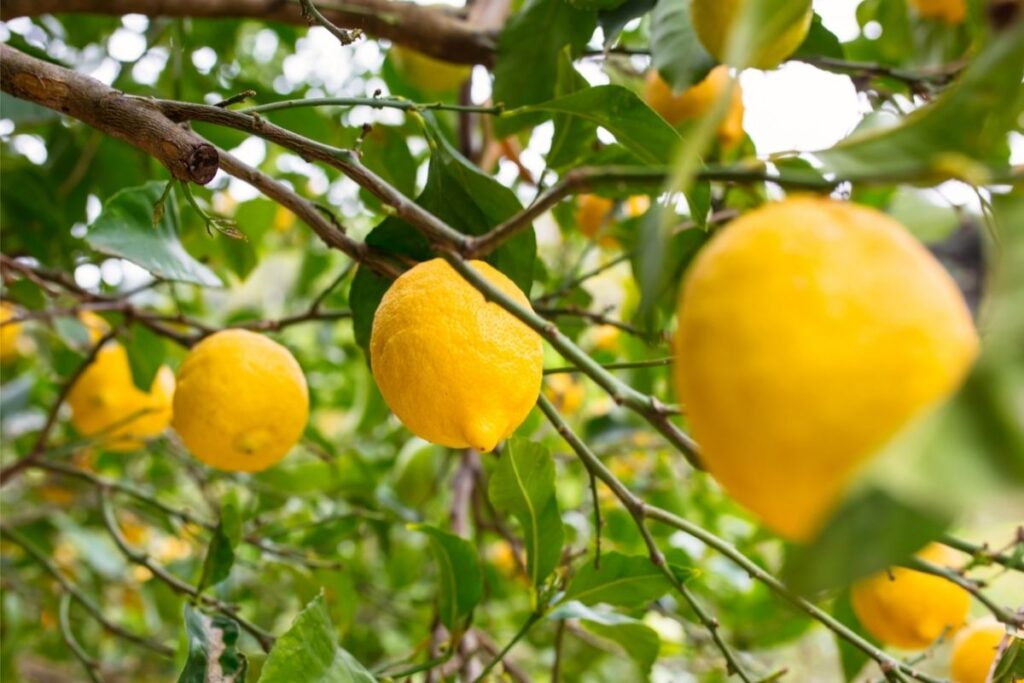
9. Ponderosa Lemon Tree
The ponderosa lemon tree is a cultivated plant that is most commonly grown for ornamental purposes. The ponderosa lemon fruit is recognized as a hybrid of citron and pomelo. As a hybrid fruit of the citron and pomelo, the ponderosa lemon carries significant characteristics from both.
It is considered to be a large fruit and has an incredibly thick and bumpy exterior. Though consisting of a citrus lemon flavor, the ponderosa fruit contains a lot of seeds. Hence the ponderosa lemon tree is most commonly grown for ornamental purposes.
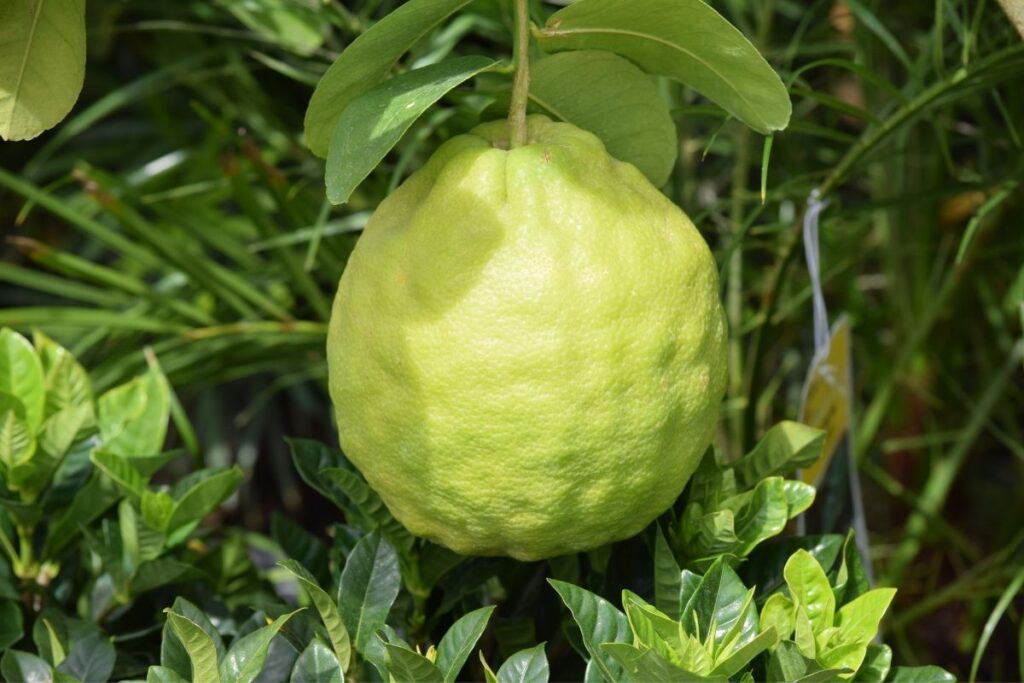
10. Volkamer Lemon Tree
The volkamer lemon tree originated from Italy but it is widely grown across the world due to the distinct sweet-tart flavor of its fruit. The volkamer lemon fruit bears resemblance to an orange fruit due to its orange rind and flesh.
The volkamer lemon fruit is classified as a hybrid of the mandarin orange and the citron hence is a sweet flavor.
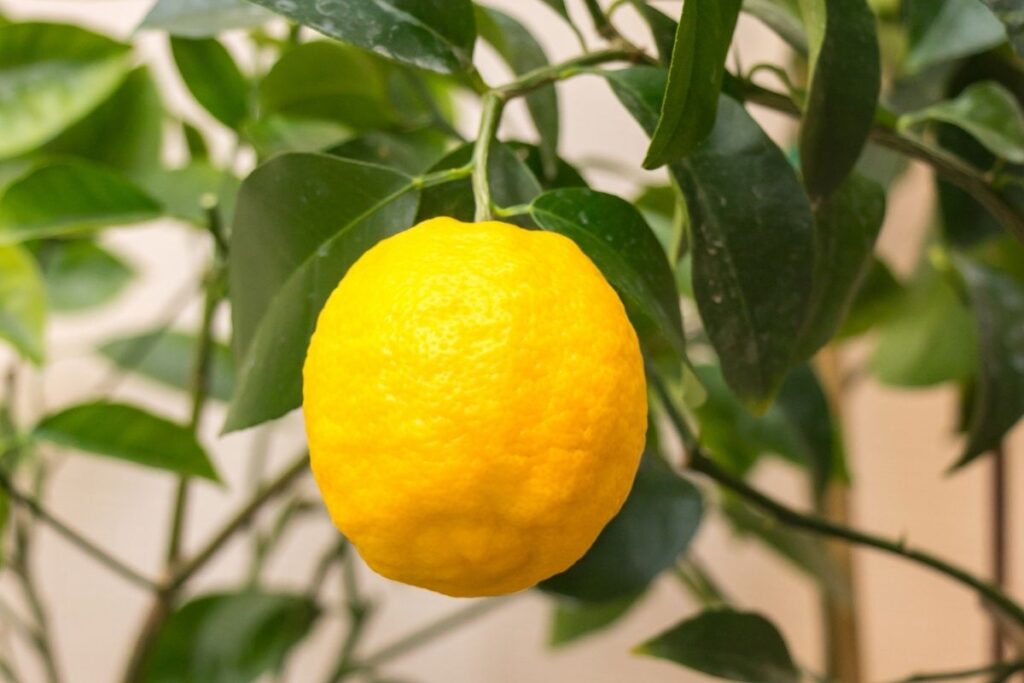
11. Meyer Lemon Tree
The Meyer lemon tree is a hybrid plant of lemon and mandarin. It is recognized for the sweet citrus fruit it bears. The Meyer lemon fruit is considered to have a distinctive thin skin that is easy to peel and is commonly used for culinary purposes. The Meyer lemon tree is a relatively hardy plant as it thrives in a variety of soils.
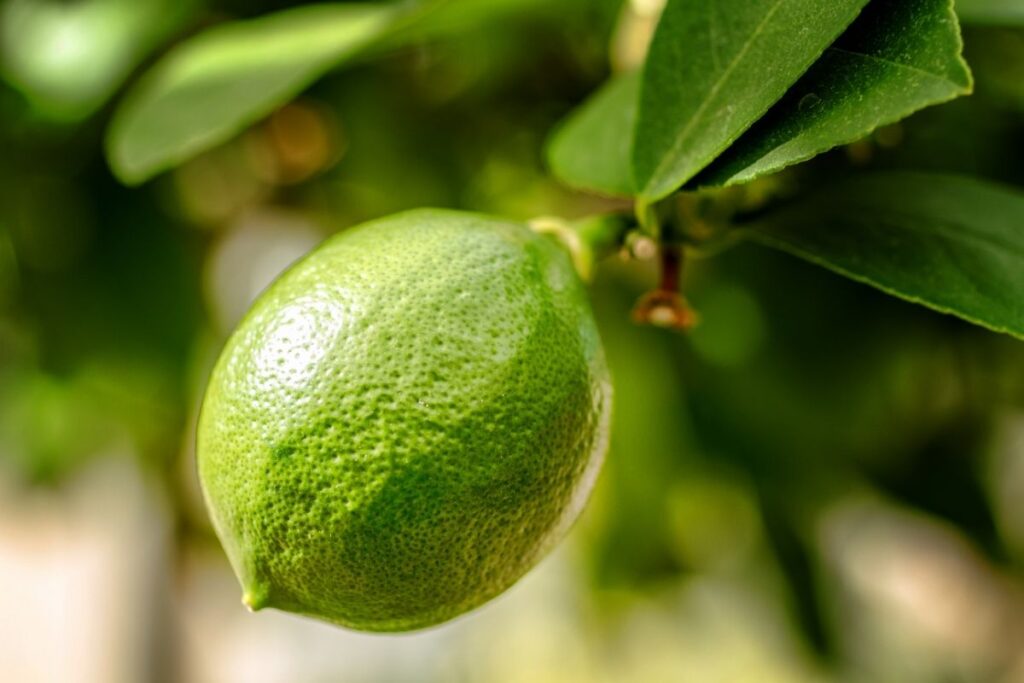
12. Eureka Lemon Tree
The Eureka lemon tree can take up to three years before it starts producing fruit. Though it takes a long time to bear its fruit, it’s worth the wait as the fruit it produces is considered to be one of the most popular lemon varieties. The Eureka lemon tree is another hardy plant that thrives in a variety of soil types from clay to sand.
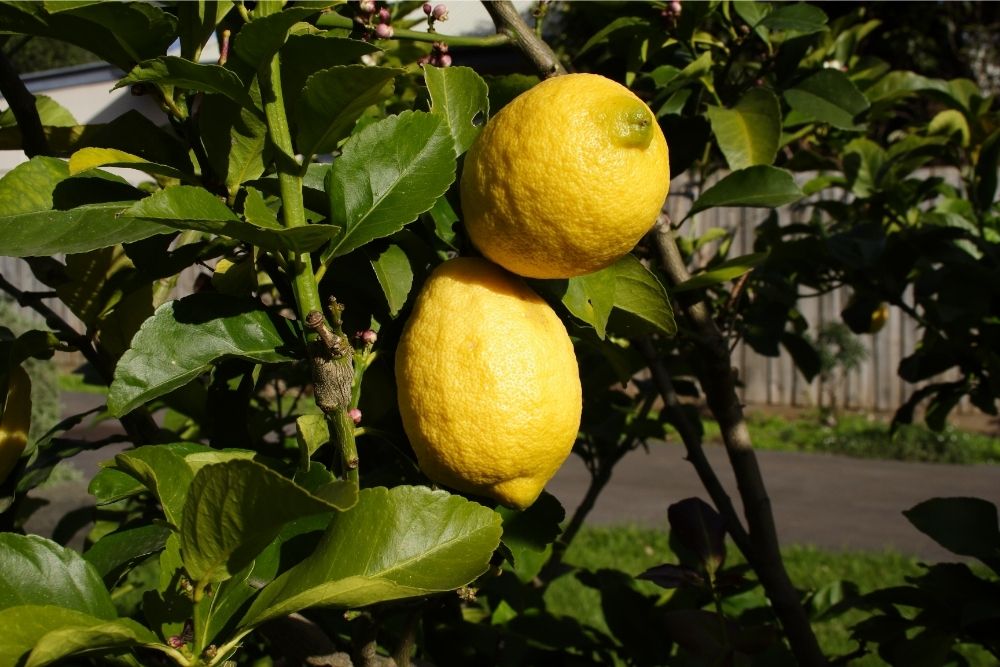
13. Primofiori Tree
The primofiori lemon tree is considered to be a significantly vigorous plant that grows rapidly with a shrub-like structure.
The primofiori tree produces fruit with a smooth rind and few seeds which makes it an appealing fruit for consumption. Though native to Spain, the primofiori lemon tree is widely grown across Mediterranean regions.
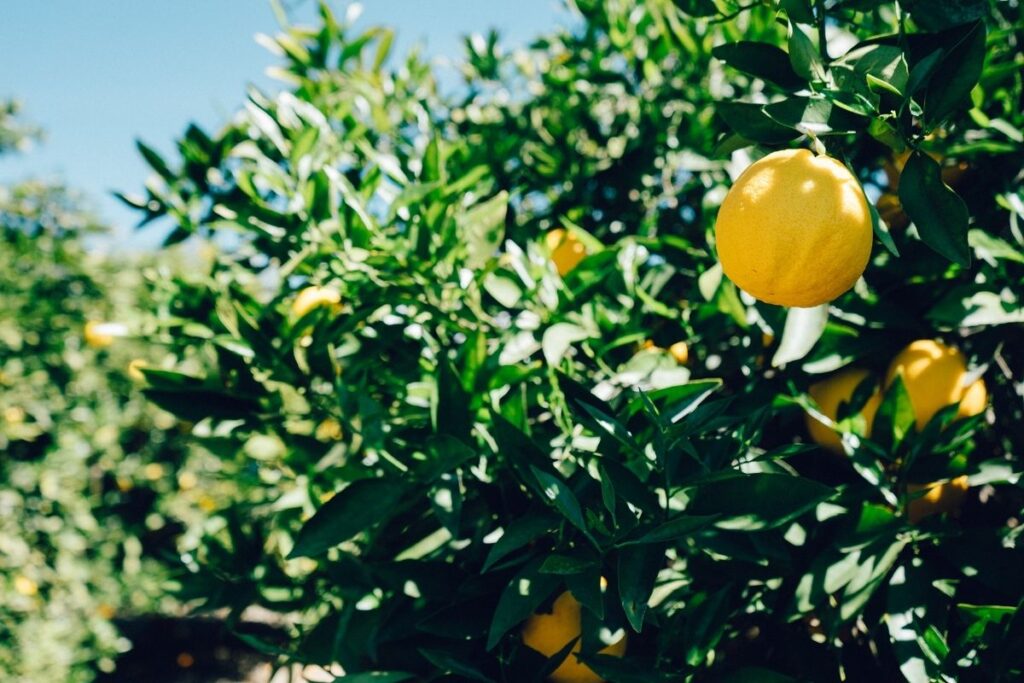
14. Buddha’s Hand Lemon Tree
The buddha’s hand lemon tree, scientifically known as the Citrus medica var. Sarcodactylis, this unique lemon tree that is recognized for its oddly-shaped fruit that consists of thick, long finger-like citrus segments that contain mainly white find and very little pulp.
Like its fruit, the buddha’s hand tree consists of a shrub-like appearance with long and straggly branches.
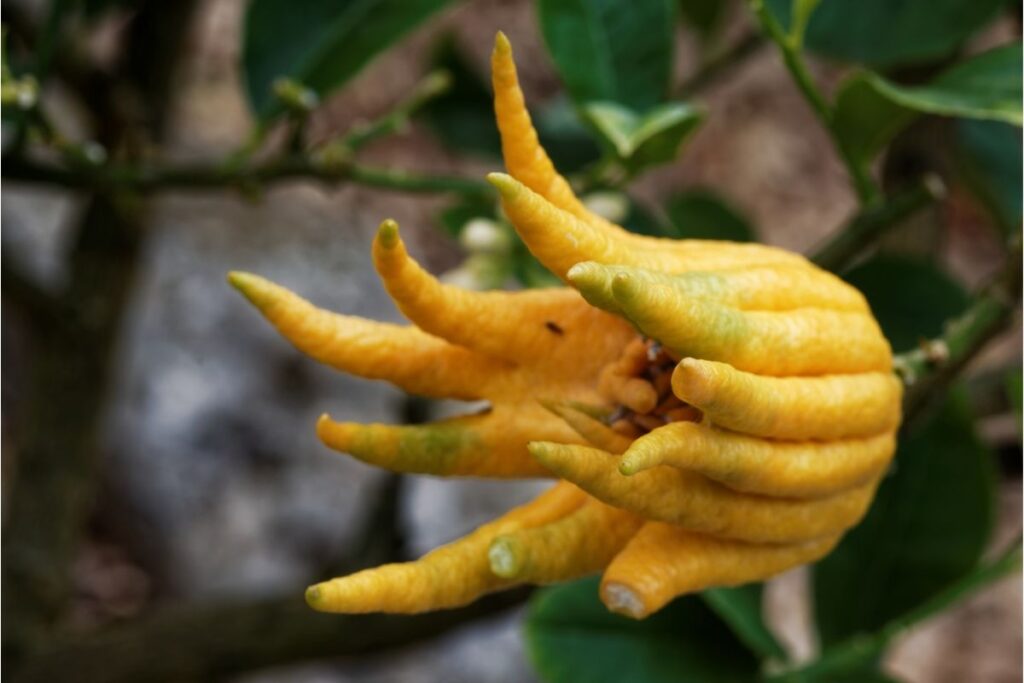
15. Bush Tree
The bush lemon tree is characterized as a relatively large shrub with thick and fragrant foliage. Known as the bush lemon tree, the bush certainly does have a bush-like structure.
The bush lemon tree is native to Australia and can be found growing wild in subtropical regions as it thrives in warm weather. The tree is known to produce orange-red fruit commonly known as rough lemon due to its thick and bumpy rind.
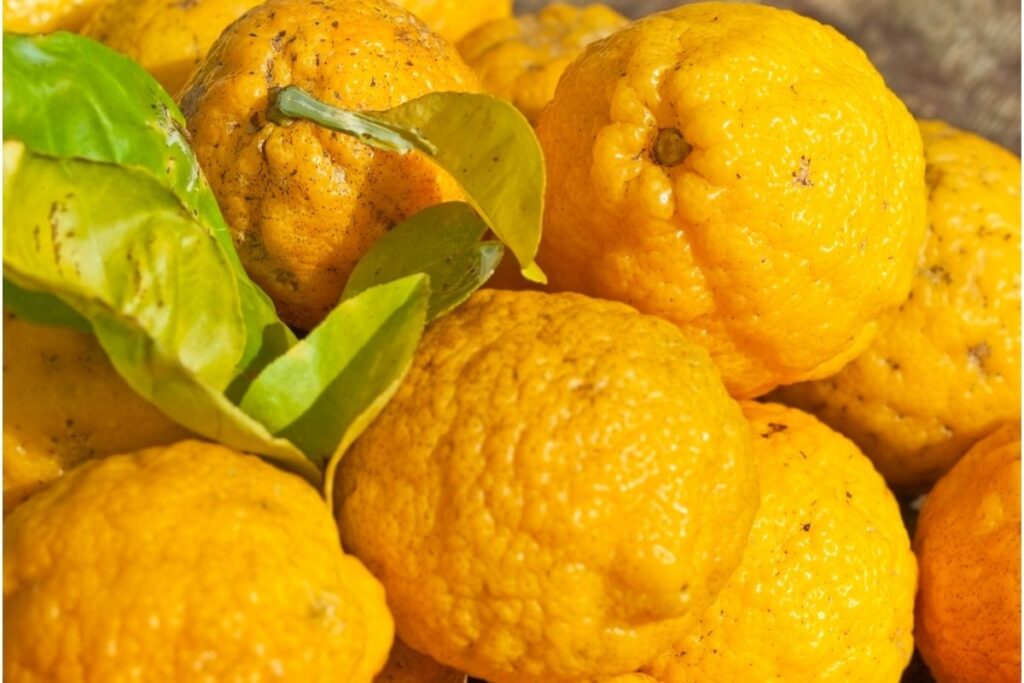
16. Bonnie Brae Tree
The Bonnie Brae lemon tree is a cultivated variety that can most commonly be found growing across southern California. The Bonnie Brae tree is recognized for the fruit bears.
Its fruit features the appearance of the common lemon, however, it differs from other lemon varieties as it is seedless and consists of a thin easy-peel rind. Though classified as a lemon, the Bonnie Brae lemon fruit produces a tart lime-like flavor.
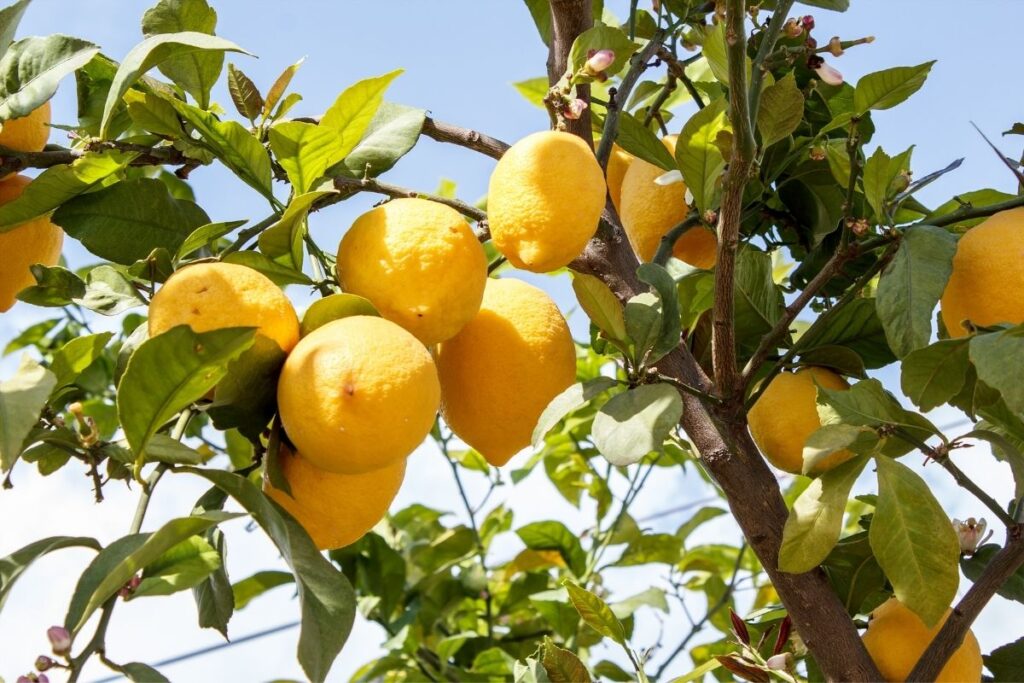
17. Santa Teresa Tree
The Santa Teresa lemon tree is native to Italy and is most commonly recognized for the fruit it bears which is used for making limoncello.
The Santa Teresa lemon tree thrives in the Mediterranean climate and can most commonly be found growing around the Sorrento Peninsula. Due to the rich volcanic soil of the region, Santa Teresa lemons are recognized for their distinctive sweet but acidic flavor.
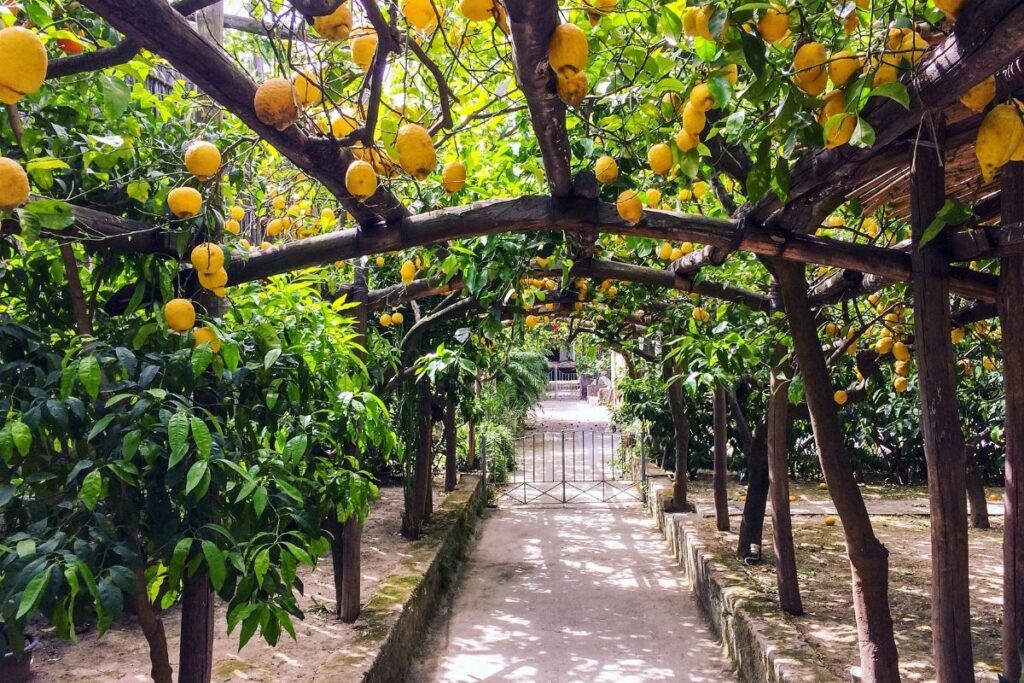
18. Lamas Tree
The lamas lemon tree is native to Turkey. The tree is recognized for the high-quality fruit it produces. The tree is considered to be relatively small but versatile as it has been known to thrive in several climates.
Hence, it is widely grown as an ornamental plant. Due to its fruits’ balanced sweet and acidic flavor, the lamas fruit is often used for culinary purposes.
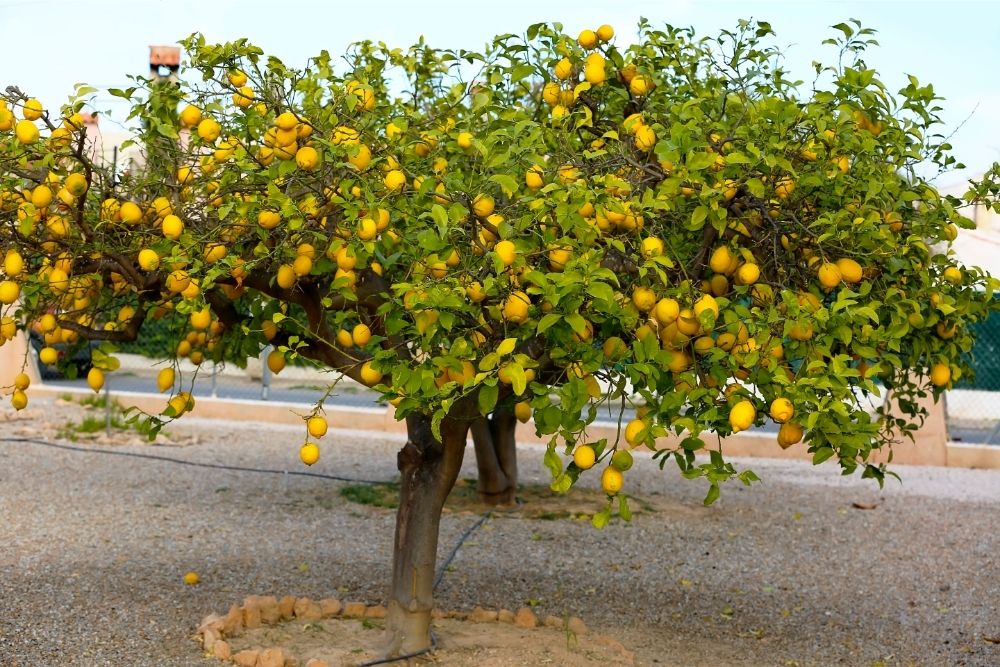
19. Assam Perrine Tree
The Assam Perrine lemon tree is a cultivated variety that was developed in Florida. The tree was cultivated with its fruit in mind. Assam Perrine lemons are widely sought after due to their characteristics of being resistant to diseases that other lemon varieties are exposed to.
Though not considered to be the nicest tasting due to its rich acidity, the Assam Perrine lemon fruit is widely consumed due to it being significantly rich in vitamin C.
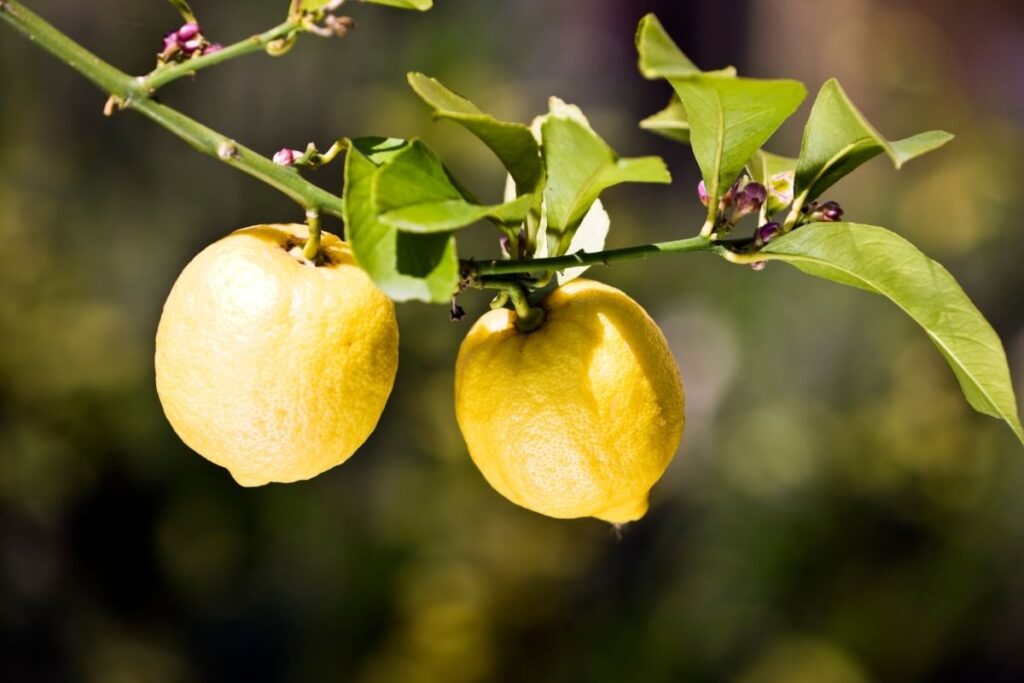
20. Lumia Tree
The Lumia tree is widely recognized across the Mediterranean as a common lemon tree. It produces a uniquely pear-shaped fruit that is commonly called the sweet French lime due to its tart and bitter taste. The Lumia fruit is relatively large with a thick rind and dry pulp in relation to the common lemon.
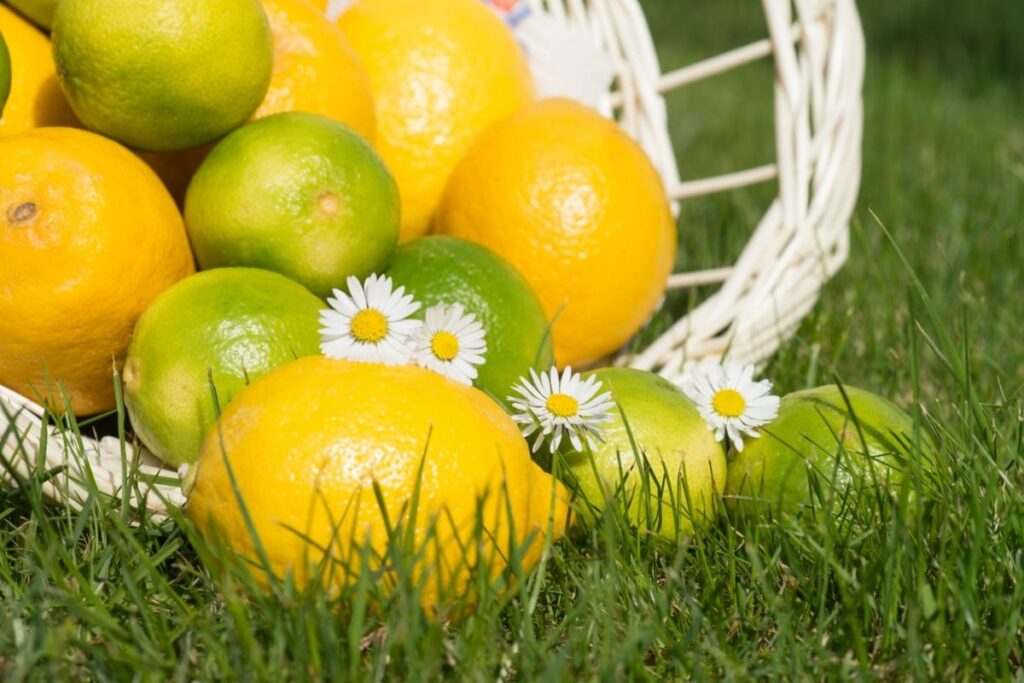
Takeaway
From lemons that look like watermelons to lemons that look like pears… The variety that lemon trees offer is endless. This glossary of lemon trees reflects the broad diversity of the natural world with lemon trees that are large, small, hardy, and delicate in nature.
Some lemon trees even produce fruit that is under disguise as they slip under the radar often mistaken for other common fruits. Though varying in features and characteristics, one commonality between lemon trees is their distinct citrus scent and glossy leaves.
Editor’s Recommendations
How To Save An Overwatered Peace Lily From Dying? A Comprehensive Guide
Why Are My Calathea Leaves Curling, And, How To Fix It Fast?
Morel Mushrooms: Key Steps in Growing These Rare and Delicious Mushrooms







